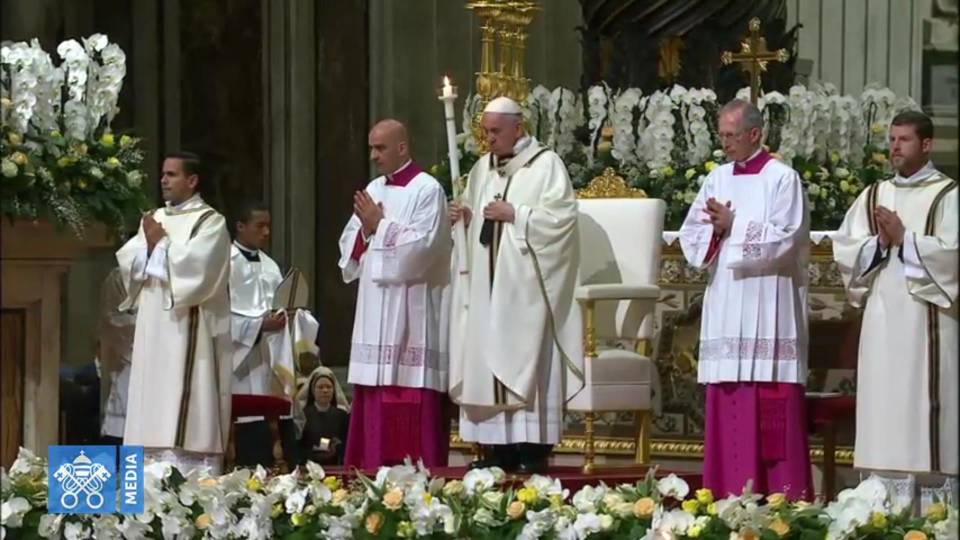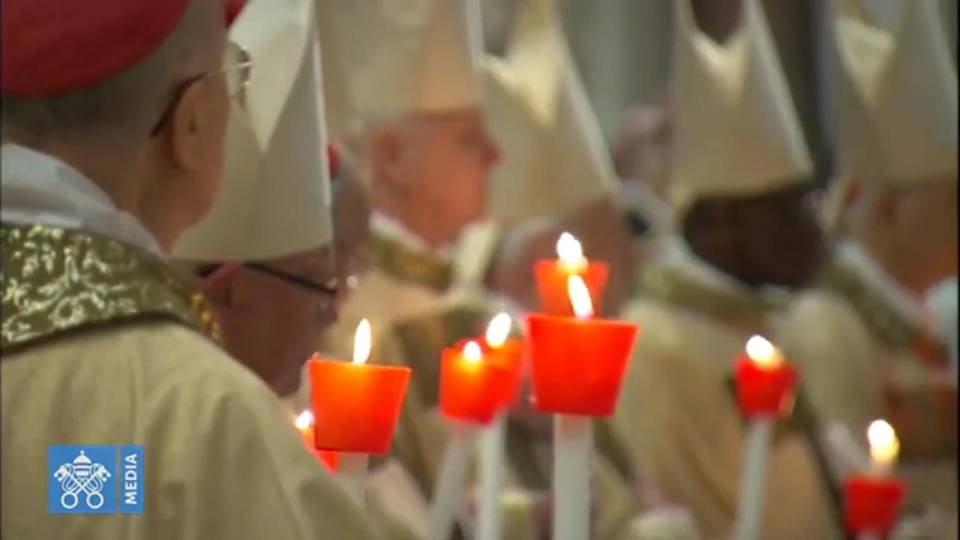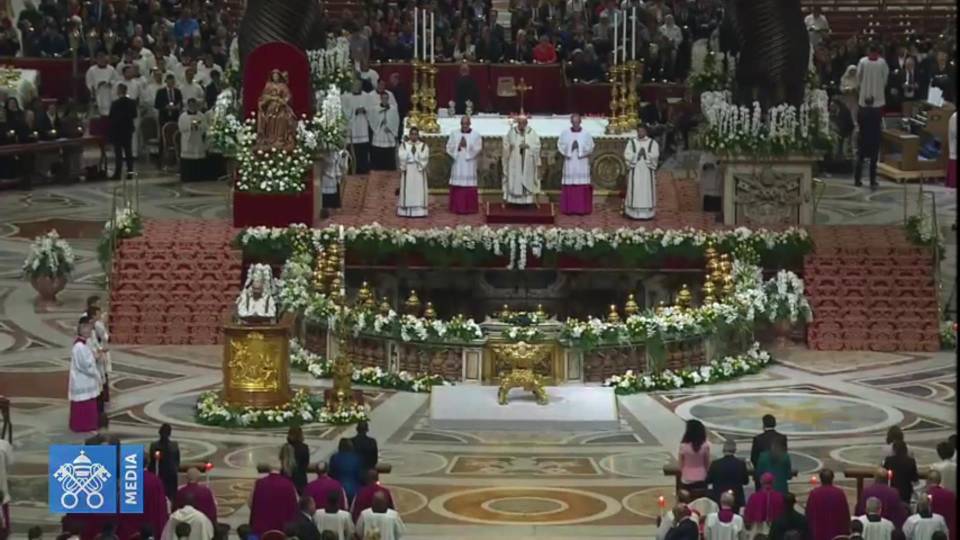

Pope Francis' homily at the Easter Vigil in St. Peter's Basilica
Salt + Light Media
Saturday, April 20, 2019

On April 20, 2019, Pope Francis presided over the Easter Vigil celebration in St. Peter's Basilica (Courtesy of Vatican Media)
This evening at 8:30 in St. Peter’s Basilica, Pope Francis presided at the Solemn Easter Vigil. The celebration began in the atrium of St. Peter's Basilica with the blessing of fire and the preparation of the Easter candle. The procession then moved to the altar, with the Easter candle lit and the singing of the Exultet. This was followed by the Liturgy of the Word and the baptismal liturgy. Pope Francis administered the Sacraments of Christian Initiation to 8 catechumens from Italy, Albania, Ecuador, Indonesia, and Peru. Here is the homily given by Pope Francis after the proclamation of the Gospel during the Easter Vigil liturgy:1. The women bring spices to the tomb, but they fear that their journey is in vain, since a large stone bars the entrance to the sepulcher. The journey of those women is also our own journey; it resembles the journey of salvation that we have made this evening. At times, it seems that everything comes up against a stone: the beauty of creation against the tragedy of sin; liberation from slavery against infidelity to the covenant; the promises of the prophets against the listless indifference of the people. So too, in the history of the Church and in our own personal history. It seems that the steps we take never take us to the goal. We can be tempted to think that dashed hope is the bleak law of life. Today however we see that our journey is not in vain; it does not come up against a tombstone. A single phrase astounds the woman and changes history: “Why do you seek the living among the dead?” (Lk 24:5). Why do you think that everything is hopeless, that no one can take away your own tombstones? Why do you give in to resignation and failure? Easter is the feast of tombstones taken away, rocks rolled aside. God takes away even the hardest stones against which our hopes and expectations crash: death, sin, fear, worldliness. Human history does not end before a tombstone, because today it encounters the “living stone” (cf. 1 Pet 2:4), the risen Jesus. We, as Church, are built on him, and, even when we grow disheartened and tempted to judge everything in the light of our failures, he comes to make all things new, to overturn our every disappointment. Each of us is called tonight to rediscover in the Risen Christ the one who rolls back from our heart the heaviest of stones. So let us first ask: What is the stone that I need to remove, what is its name? Often what blocks hope is the stone of discouragement. Once we start thinking that everything is going badly and that things can’t get worse, we lose heart and come to believe that death is stronger than life. We become cynical, negative and despondent. Stone upon stone, we build within ourselves a monument to our own dissatisfaction: the sepulcher of hope. Life becomes a succession of complaints and we grow sick in spirit. A kind of tomb psychology takes over: everything ends there, with no hope of emerging alive. But at that moment, we hear once more the insistent question of Easter: Why do you seek the living among the dead? The Lord is not to be found in resignation. He is risen; he is not there. Don’t seek him where you will never find him: he is not the God of the dead but of the living (cf. Mk 22:32). Do not bury hope! There is another stone that often seals the heart shut: the stone of sin. Sin seduces; it promises things easy and quick, prosperity and success, but then leaves behind only solitude and death. Sin is looking for life among the dead, for the meaning of life in things that pass away. Why do you seek the living among the dead? Why not make up your mind to abandon that sin which, like a stone before the entrance to your heart, keeps God’s light from entering in? Why not prefer Jesus, the true light (cf. Jn 1:9), to the glitter of wealth, career, pride and pleasure? Why not tell the empty things of this world that you no longer live for them, but for the Lord of life?

On April 20, 2019, Pope Francis presided over the Easter Vigil celebration in St. Peter's Basilica (Courtesy of Vatican Media)

On April 20, 2019, Pope Francis presided over the Easter Vigil celebration in St. Peter's Basilica (Courtesy of Vatican Media)
Related Articles:
<<













